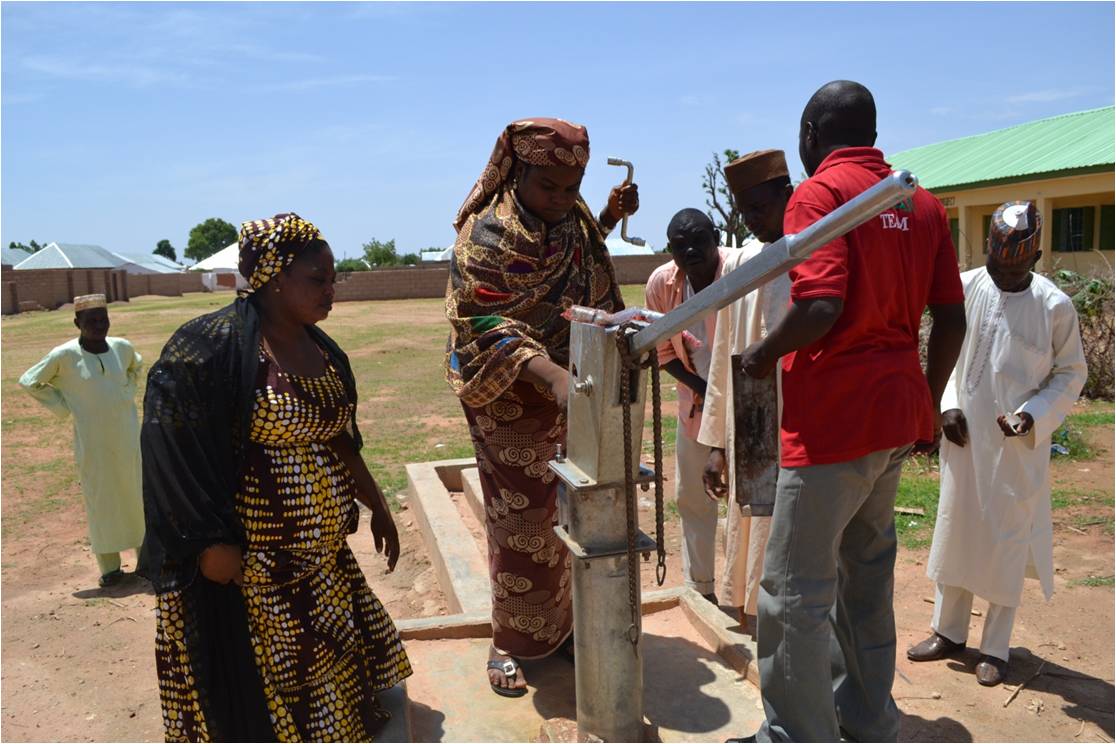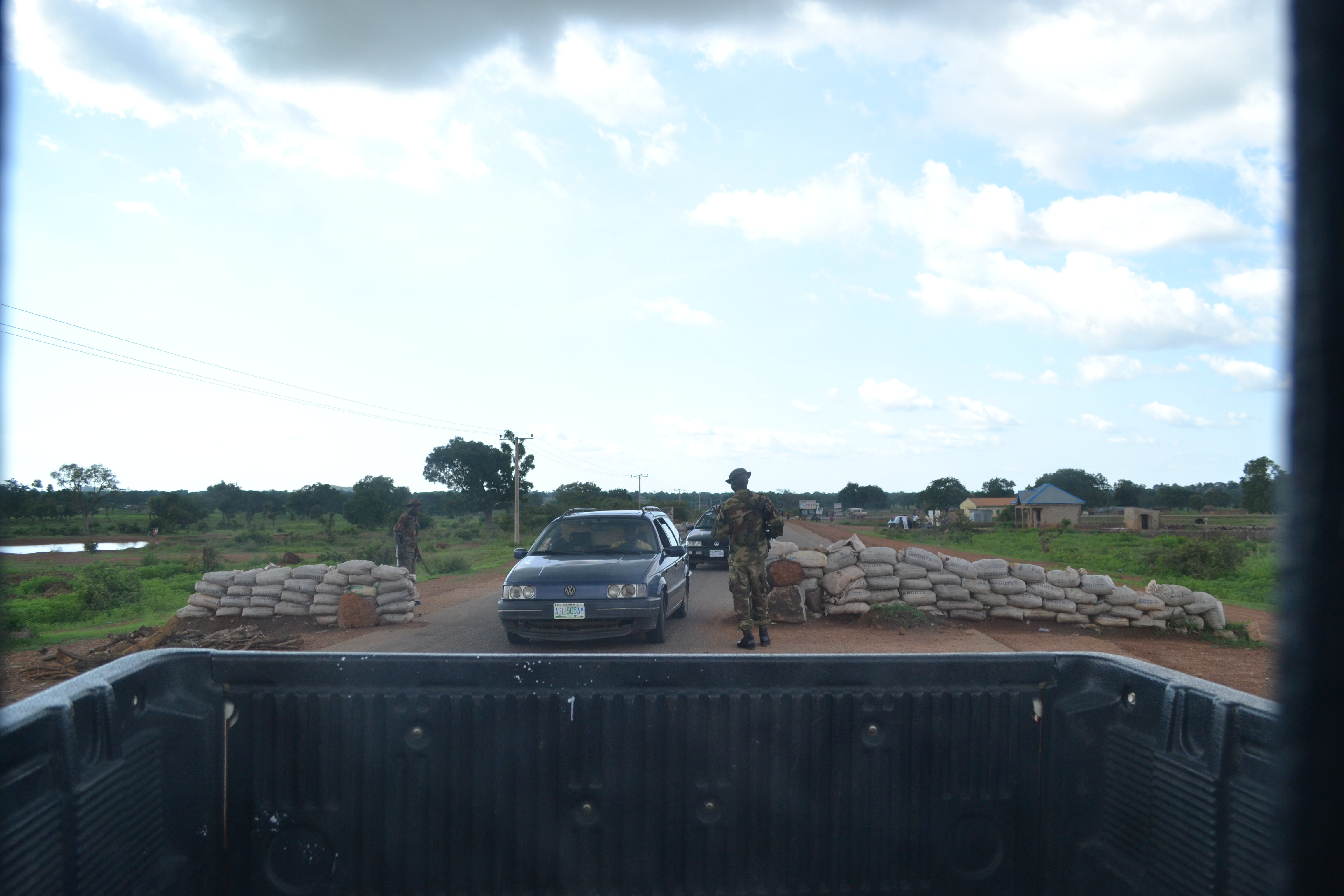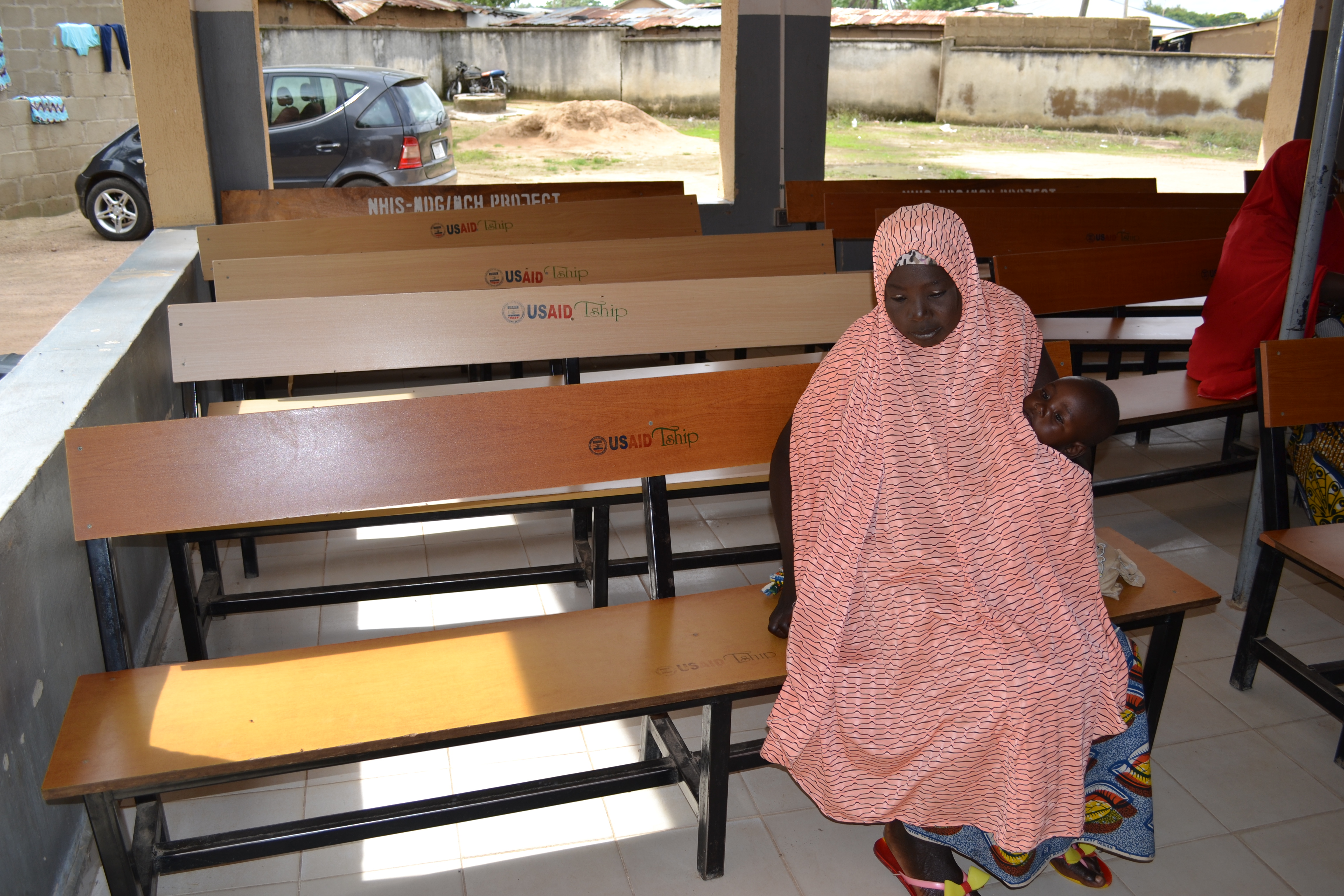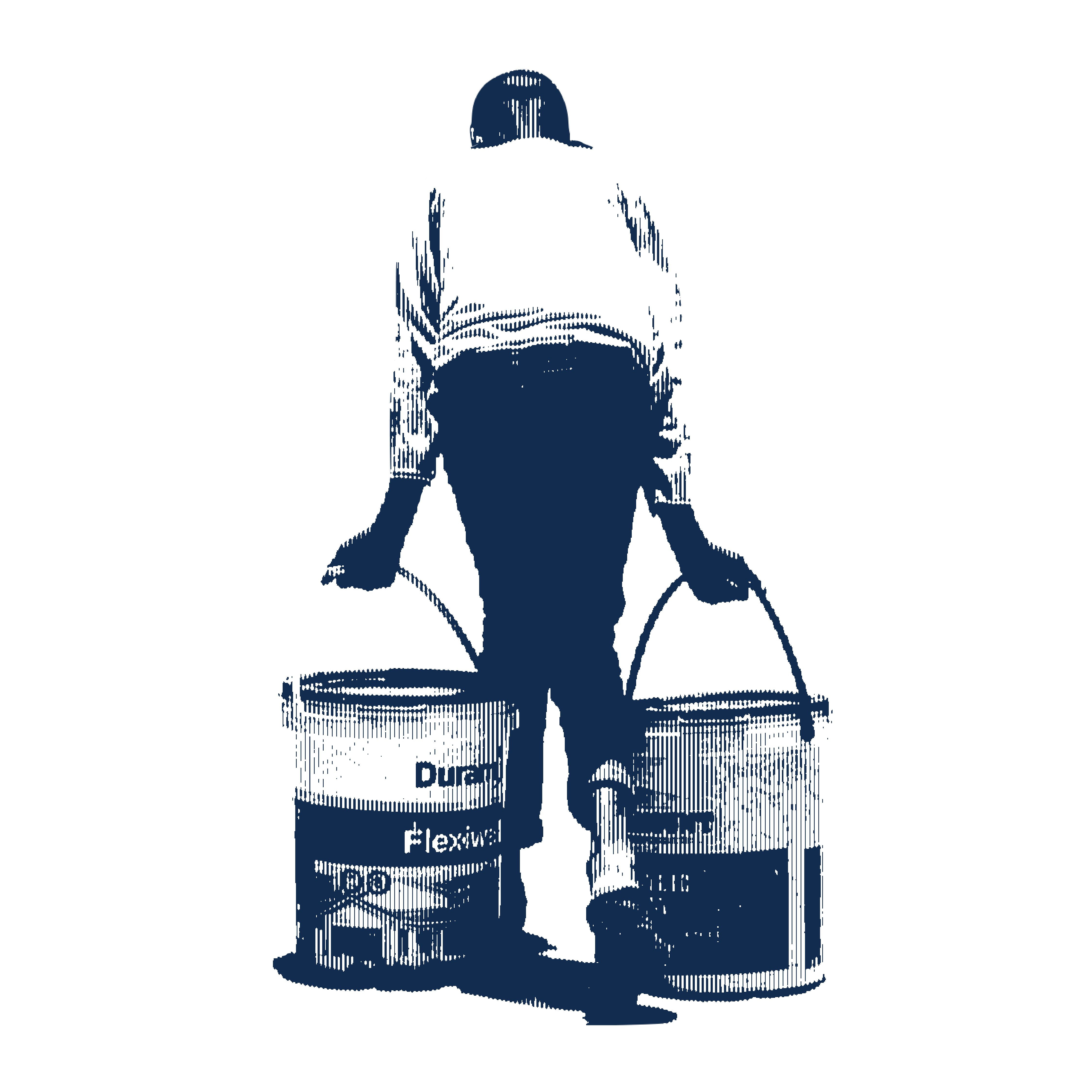
She could not help looking just a bit smug as she grabbed the wrench and went to work on the broken water pump that stood in the middle of the school. Asabe Issa, a primary school teacher from Hardawa, repairs boreholes.
"It's not as hard as it looks," she says in Hausa, trying to downplay her accomplishment. But in a community where most women are illiterate and/or in purdah, Issa has gained some celebrity status.
Early this year, the thirty-five-year-old mother of four was part of training sessions organized by the Water, Sanitation and Health (WASH) project. This initiative empowers communities to keep boreholes working. Participating communities also receive free work tools worth an estimated $350.
The government, non-governmental organizations (NGOs), and foreign donors annually spend millions of dollars to provide boreholes in areas without access to clean drinking water in Nigeria. However, more than half of these boreholes break down, sometimes mere weeks after they are commissioned. In 2011, conservative estimates put the number of broken and abandoned boreholes in the country at 20,000.
Taiwo Olawale, project manager with the Women Farmers Advancement Network—WOFAN, a local NGO that collaborates with the United States Agency for International Development (USAID) on WASH—says a lot of times these broken hand pumps often just have minor problems. "That's why WASH chooses to provide hand pumps to communities; they are far easier to repair and maintain than the fancy looking motorized boreholes."
Nigeria, with a population of about 160 million people, is faced with acute water shortages which of course come with social and economic consequences. Experts say that investment in the water sector is not moving fast enough to ensure the country meets the Millennium Development Goal set for reducing the number of those without access to safe drinking water by 2015.
Better management of investments and infrastructure in the water sector has also been advocated as investigations show that a lot of the problems in the sector are more about poor management and corruption and less about the actual lack of the water resource. In rural northern Nigeria, communities like Hardawa suffer serious water scarcity. It is estimated that only about 30 percent of rural dwellers in the country have access to clean and safe water.
So it is not surprising that huge excitement and celebrations often greet the commissioning of a borehole. And it is particularly frustrating when the water pump in a village breaks down. Olawale says this is why the scheme to train people to fix water-pumps is very important. "It's all about empowerment," he says, "The communities have committees so they are also able to raise small contributions that pay for spare parts and repairs."
Meanwhile, Issa continues to bask in her newly acquired skill. She is planning a training session for the women's group in the community. When asked if this may be a new career path for her, she shakes her head and with a laugh says "Who knows?"

Education Resource
Ameto Akpe Discusses America's Soft Power in Nigeria
Nigerian journalist Ameto Akpe discusses her project Nigeria: U.S. Dollars and Dubious Results which...




